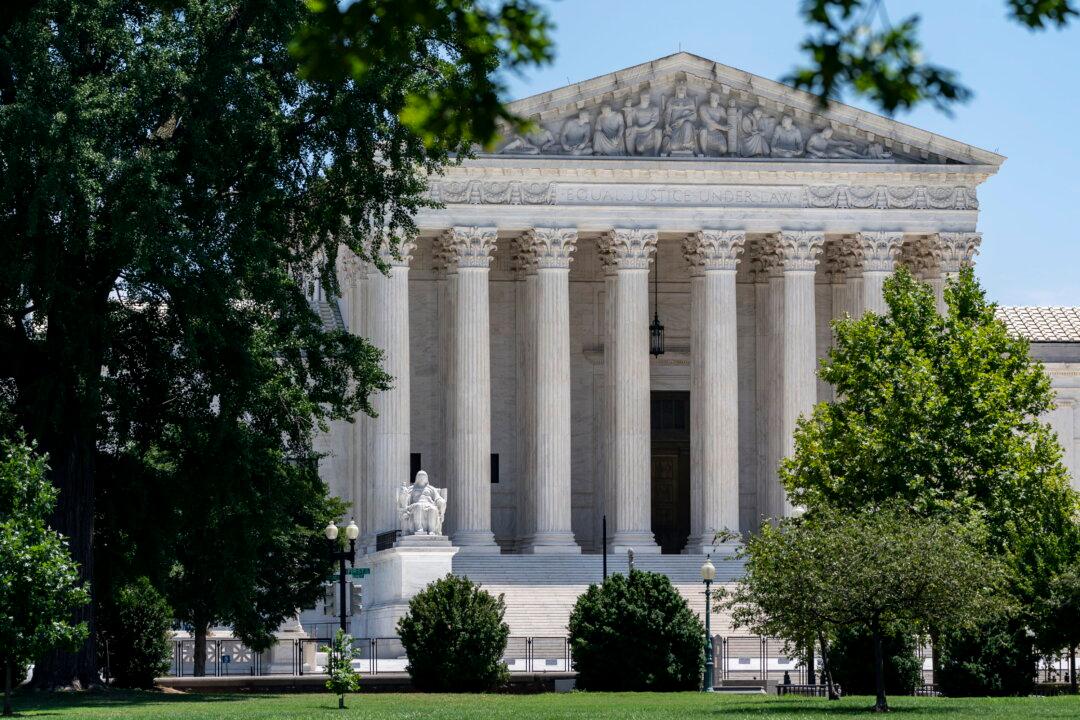The Supreme Court issued an emergency order on Aug. 19 blocking upcoming elections for Georgia’s Public Service Commission, upholding a lower court ruling that found that the election rules currently in place discriminate against black voters.
The order is unusual because, in recent years, the high court has generally been reluctant to side with voters over state officials in disputes over election rules, especially when the court has been asked to act in an emergency posture.





